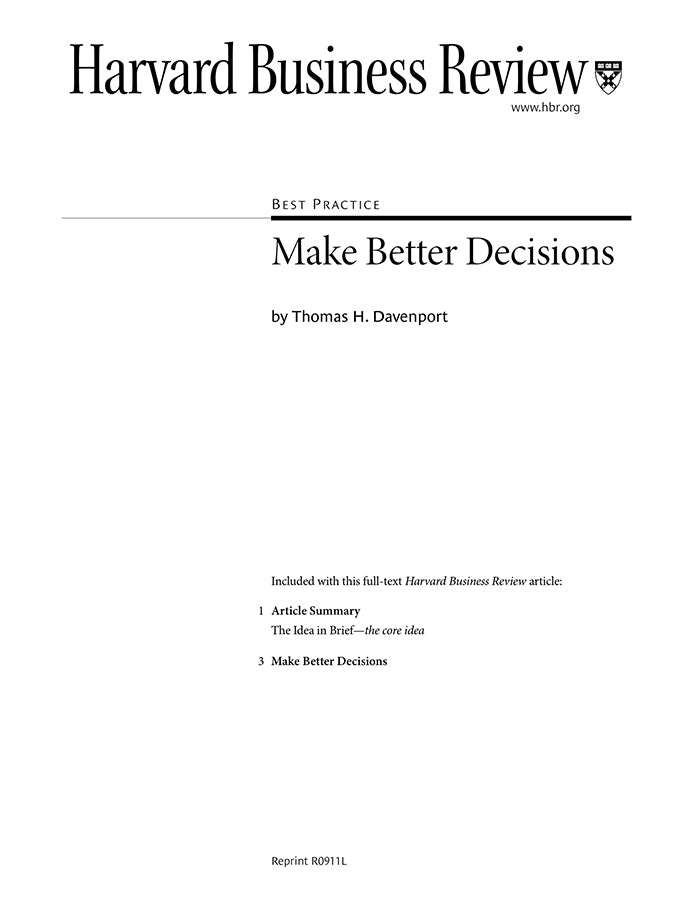Make Better Decisions
受取状況を読み込めませんでした
Traditionally, decision making in organizations has rarely been the focus of systematic analysis. That may account for the astounding number of recent poor calls, such as decisions to invest in and securitize subprime mortgage loans or to hedge risk with credit default swaps. Business books are rich with insights about the decision process, but organizations have been slow to adopt their recommendations. It's time to focus on decision making, Davenport says, and he proposes four steps: (1) List and prioritize the decisions that must be made; (2) assess the factors that go into each, such as who plays what role, how often the decision must be made, and what information is available to support it; (3) design the roles, processes, systems, and behaviors your organization needs; and (4) institutionalize decision tools and assistance. The Educational Testing Service and The Stanley Works, among others, have succeeded in improving their decisions. ETS established a centralized deliberative body to make evidence-based decisions about new-product offerings, and Stanley has a Pricing Center of Excellence with internal consultants dedicated to its various business units. Leaders should bring multiple perspectives to their decision making, beware of analytical models that managers don't understand, be clear about their assumptions, practice "model management," and - because only people can revise decision criteria over time - cultivate human backups.
【書誌情報】
ページ数:12ページ
サイズ:A4
商品番号:HBSP-R0911L
発行日:2009/11/1
登録日:2012/3/28


